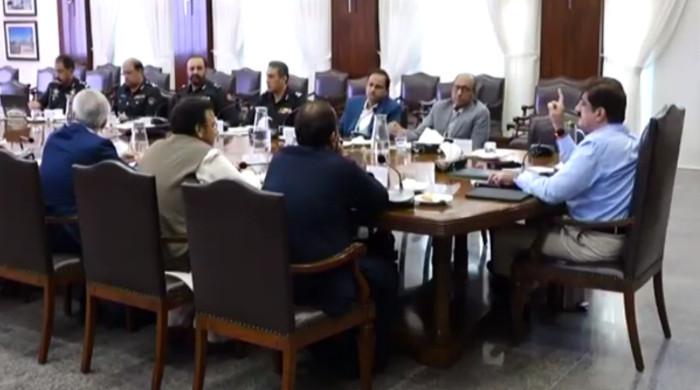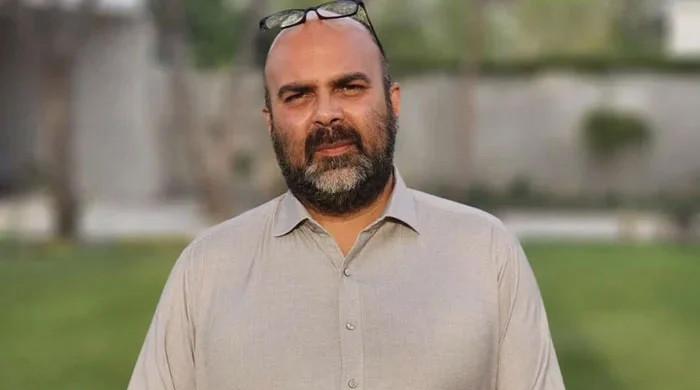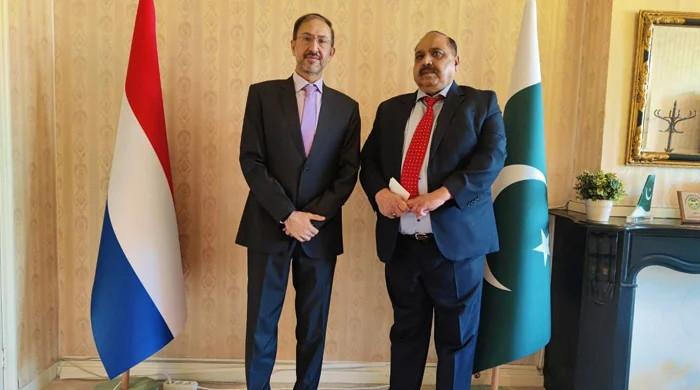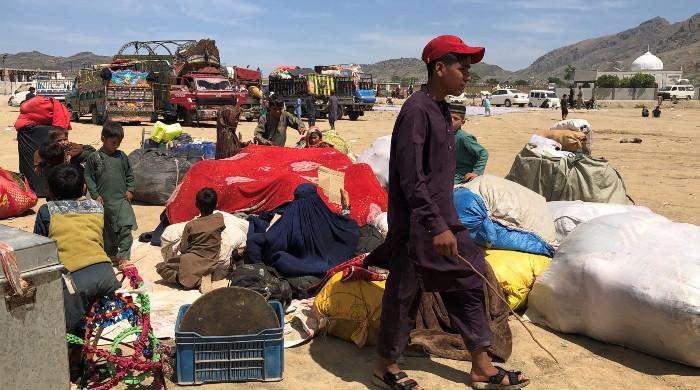Hard to imagine strong economy in state torn by terrorism: PM Shehbaz
Premier says not only armed forces but all institutions, ministries and provinces responsible for eradicating terrorism
June 22, 2024
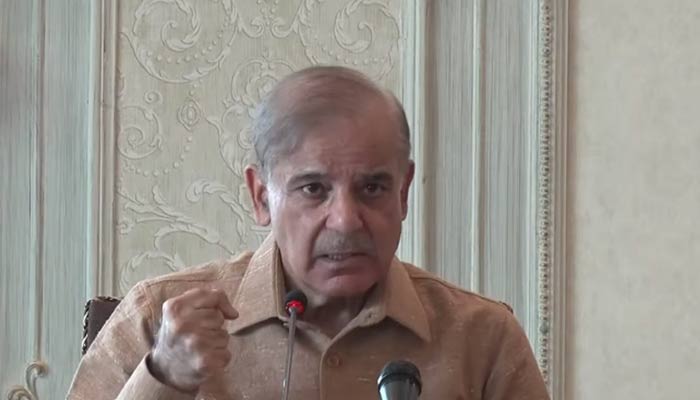
- PM Shehbaz says "soft state cannot gain the trust of investors".
- Premier pledges assistance to military in war against terrorism.
- "Joint responsibility to implement state's governance".
ISLAMABAD: Prime Minister Shehbaz Sharif has said that the prevalence of terrorism in the country is a complicated matter and everyone has to play a role in ending this menace.
"A strong economy can not be imagined in an unstable state involved in terrorism," he said while addressing a meeting of the National Action Plan (NAP) Apex Committee on Saturday.
The premier chaired the meeting held for crucial decisions, including those concerning the security of Chinese workers in Pakistan.
The forum was attended by several high-ranking officials, including the Chief of Army Staff General Asim Munir, federal ministers, chief ministers of the four provinces, and all inspector generals of police.
As the country reels from recurring incidents of terrorism, including attacks on Chinese nationals on Pakistani soil, the prime minister said that every institution, ministry, provincial government or agency needed to play an active role in dealing with this challenge.
The prevalence of terrorism was a complicated matter, PM Shehbaz said while calling for the implementation of state governance in order to deal with the challenge.
He said that "stability and the rule of law are necessary" for the sustainable development of the country. "The war against terrorism is the prime obligation of all state institutions. It is our joint responsibility to implement the state's governance with full force."
The prime minister said that he expected the provinces would fully play their part in this regard and end the menace of terrorism in the country.
He went on to say that our political and religious leadership must be completely clear in order to fight against terrorism.
He said that "it is Pakistan's own war" and the country should take this responsibility.
"Provincial governments cannot be absolved from their duties by putting the onus on armed forces to end terrorism. Laying responsibility on a single institution would be a blatant mistake."
He further stated that a "soft state cannot gain the trust of investors" whether internal or external.
PM Shehbaz stressed the need for active diplomacy with regional countries, which would tighten the noose around terrorist elements.
He also called for strengthening the law enforcement agencies by legislation. "We need harmony among all the elements of power."
The premier also pledged all the required assistance or funds to the armed forces in the war against terrorism. "The Centre bears the expenses of the military's war against terrorism. We will not leave any stone unturned in fulfilling the army's requirements."
Moreover, he lamented the social media disinformation in the country, vowing to make laws to address the issue.
"Enemies of Pakistan have poisoned the social space," PM Shehbaz said while pledging to ensure that the disinformation and falsehood don't conceal the truth.
He said such laws would be made that end the narratives of hatred and division.
Pakistan assures security of Chinese citizens
The government in Islamabad, on June 16, assured Beijing of providing foolproof security to Chinese citizens working on different projects in Pakistan, reiterating that no one can create rifts between the two countries.
The assurance came during Interior Minister Mohsin Naqvi’s meeting with Chinese Ambassador Jiang Zedong at the Chinese Embassy in Islamabad.
Both sides discussed the measures taken for the security of Chinese citizens in Pakistan.
The interior minister informed the Chinese envoy about the measures to protect Chinese citizens across the country including Islamabad.
He also briefed him on the security plan of Chinese engineers and staff working on CPEC and other projects.
Naqvi said that comprehensive and effective SOPs have been made for the security of Chinese citizens and a separate force “SPU” is being created in Islamabad for foreign nationals.
The two sides also reiterated their commitment to combating terrorism in all its forms and manifestations with a “zero tolerance” attitude and agreed to further strengthen cooperation in counter-terrorism and security through a comprehensive approach.
The NAP Apex Committee meeting comes as the country grapples with the challenge of extremism in the country.
According to the Centre for Research and Security Studies (CRSS) Q1 2024 Security Report, at least 92% of all fatalities and 86% of attacks, including those related to terrorism and security forces operations, were recorded in the Khyber Pakhtunkhwa and Balochistan provinces in the first quarter of 2024.
The report further detailed that the country witnessed at least 432 violence-linked fatalities and 370 injuries among civilians, security personnel and outlaws resulting from as many as 245 incidents of terror attacks and counter-terror operations.
Among the 432 fatalities, 281 included that of civilians and security forces personnel.





